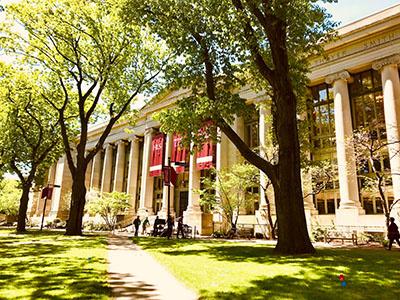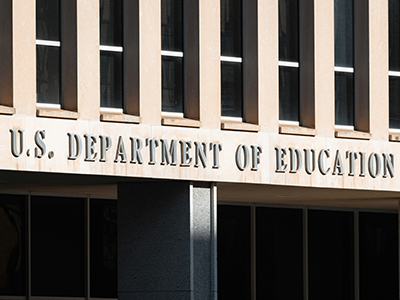Strategies from and for the Classroom
By Rebecca Colesworthy, Dana A. Williams, and Rita B. Dandridge
By Rebecca Colesworthy, Dana A. Williams, and Rita B. Dandridge
By Nick Sanders and Bethany Meadows
By Gorka Bilbao Terreros
By Aimée Boutin
By Douglas Dowland
By S. Shankar
Winter 2024–25
Profession: articles, news, and resources for the work you do
This report presents the results of research into stipends for . . .
Helen Small, Merton Professor of English Language and Literature at . . .
For the past several years, we’ve been trying to rethink . . .

The new rules would streamline the process for moving from one accreditor to another.

The lawsuit aims to restore billions of dollars of frozen research funding.

Congress had previously authorized the funds with the goal of improving mental health support.
I am suggesting that doctoral programs think more expansively about the concept of composition as a practice in the construction of meaning so that graduate students are prepared to recognize their ability to teach interpretive practices . . .
If we believe in the value of the humanities and want them to have a future, then more of us need to serve as ambassadors to audiences beyond these degree-attainment cohorts. We need to regularly seek public connections—to find or create them.
Now is the time to insist that extramural speech is a vital aspect of academic freedom—precisely because the struggle for academic freedom is the struggle for democracy. . . .
If you’re an adjunct and you think you’re not good enough and that somehow not being good enough got you where you are, don’t believe that. . . .
We thought that institutions would be more likely to pay contingent faculty members a living wage, increase opportunities for advancement, and offer security if their rankings depend on their willingness to do so. . . .
I want to persuade you, therefore, to abandon any sense of complacency and to believe that we are facing at this moment—right now—a crisis in the humanities. Without action, we humanists, and the graduate and undergraduate students we care about and serve, stand to lose a great deal. . . .